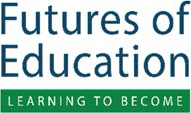Proposals should be received by 30 April, with background papers to be submitted in 2-3 months, as negotiated. Papers and proposals will be welcome in English and French.
UNESCO’s Futures of Education: Learning to become is a global initiative to reimagine how knowledge and learning can shape the future of humanity and the planet. The initiative is designed as a co-construction process that activates broad public engagement, expert inputs, as well as the work of an independent International Commission on the Futures of Education chaired by the President of Ethiopia. Following its first meeting in January 2020 the commission released a document “Visioning and Framing the Futures of Education” that lays out visions, principles and core elements for the initiative.
The Education Research and Foresight programme, which serves as the Secretariat to the International Commission, wishes to commission background papers (5000 words) that address one of four core areas the commission has identified and sketched out a vision for. To guide the background papers, an orienting question is proposed for each area:
Human and Planetary Sustainability—“We must take collective and collaborative ecological responsibility for fostering sustainable life on the planet. Education has a key role to play in changing mindsets but also in changing existing, unsustainable, wasteful practices. Education must channel human capabilities in directions that improve the quality of human life while respecting supporting ecosystems.” What can be the role of education in fostering and actualizing the creativity, imagination, and social resolve necessary for radical reconfiguration?
Knowledge Production, Access and Governance—“Knowledge must be respected as a global common good. Education must take different voices into account; recognize local knowledge, indigenous knowledge, inter-cultural exchange, and the plurality and fluidity of knowledge— while also addressing persistent asymmetries. Scientific research and other processes for generating, sharing and applying knowledge should be inclusive, democratic, transparent, localizable, and participatory. The relationship between knowledge and truth needs to be openly explored.” What can ensure that knowledge in its many forms becomes a global common good to the benefit of humanity and the planet?
Citizenship and Participation—“Participation is fundamental to creating preferred futures. Education must strengthen capacities for collective action and deepen commitments to democratic values, including respect for pluralism, diversity, intellectual emancipation and freedom of thought and expression. At the same time, education institutions and systems must live out and enact these commitments in their own operations and processes.” How can education and learning be harnessed to support civic participation, freedom of thought, and human rights?
Work and Economic Security—“Meaningful employment and economic security are cornerstones of human dignity and flourishing. Transformations in the nature of work make it all the more urgent to support learning across the lifespan and to consider higher-order skills and socio-behavioral competencies as foundational within learning systems.” What role can education play in ensuring the human-centeredness of the future of work?
Each background paper will need to be explicitly future-oriented and give consideration to changing global contexts. The initiative uses the horizon of 2050—beyond the scope of many forecasting projections—in order to encourage creative and innovative ideas on the relationships between probable/anticipated futures and possible/alternative futures. Each paper is also asked to include consideration of gender, culture/cultural heritage, and technology which the commission has identified as transversal issues cutting across each of these four core areas.
Background papers will inform the final report of the International Commission, to be released in November 2021. Selected contributions may also be independently published as part of UNESCO’s Education Research and Foresight Working Papers series.
To propose a background paper please submit an abstract of up to 500 words, together with an outline (maximum one page) and CVs of author(s). Compensation of 2500 USD will be provided for each commissioned paper (to be split among contributors in case of papers with multiple authors). Proposals should be received by 30 April, with background papers to be submitted in 2-3 months, as negotiated. Papers and proposals will be welcome in English and French.
Please address proposals and questions to futuresofeducation@unesco.org.

